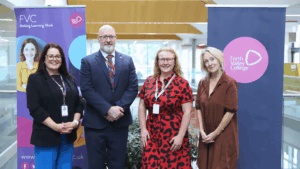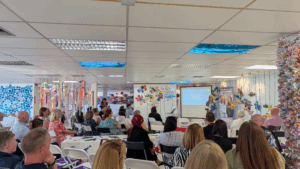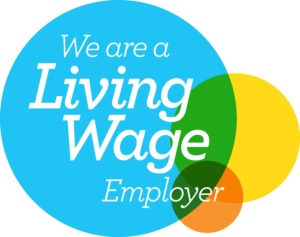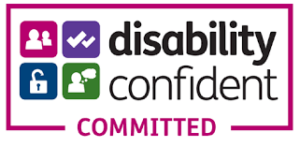Every week, mentors from across the council family visit their young person – to provide guidance, support, and a listening ear. Mentors come from all walks of life and therefore have a wide range of experience to share with their mentees. We spoke to three mentors to find out how they strike the right balance managing their work responsibilities while fitting in their weekly mentoring sessions.
Our Mentors on how to Balance Mentoring and their Work Week
Raymond Porter, Senior Claims Manager at Financial Services, is a mentor at St. Roch’s Secondary, explains why he became a mentor,
“I am very educational minded; I have two children so I understand the support young people need day-to-day. It made perfect sense that the council would support mentoring and now the logistics are a bit easier.”
Clare Burke, Senior Information Governance Officer in the Chief Executive’s Department, mentors at St. Andrew’s Secondary. Clare describe the importance of mentoring,
“I grew up in the East End of Glasgow so I can understand the difficulties some of our young people face. I felt I could relate because of my own family experience and wanted to help steer a young person in a positive direction.”
Laura Moran, Transformation Communications and Engagement Officer, Land and Environmental Services, mentors at Whitehill Secondary,
“Because it’s an hour a week plus travel I tend to treat it like everything else in my work week. I prioritise to make sure everything’s done.”
Clare agrees that disruption to her work week is minimal, explaining,
“I’ve found there’s no impact on my workload. My manager and the council is committed to supporting me and helping vulnerable young people in the city.”
All three agree that manager support is essential and negotiating that can require trial and error, but it all comes down to flexibility.
Raymond added,
“I have a flexible working schedule. It’s important to give reasonable notice to senior management to make sure my mentoring doesn’t clash with anything. I always ensure that mentoring is in my diary so colleagues know where I am.”
Speaking to these mentors, it’s clear they find the experience rewarding and enjoy spending time with their young person.
Laura concluded with her final thoughts.
“I look forward to seeing my young person, finding out how she’s getting on. It’s rewarding for me, knowing that I’m someone who she can rely on. I hope that one day, in the longer term, she’ll look back on this and think that mentoring has helped her.”
“I get a sense of satisfaction knowing that I’m doing something that is benefiting my mentee and is also supporting the council’s commitment to supporting young people in the city.”
Mentors make a difference – could you help?
Evidence shows mentoring makes a very real difference to young people. The MCR programme now reaches more than 1000 young people and we need more mentors.
Could you #GiveAnHour a week to help a young person? Full training and support is provided.
Glasgow City Council published this story in their recent Insider magazine.





